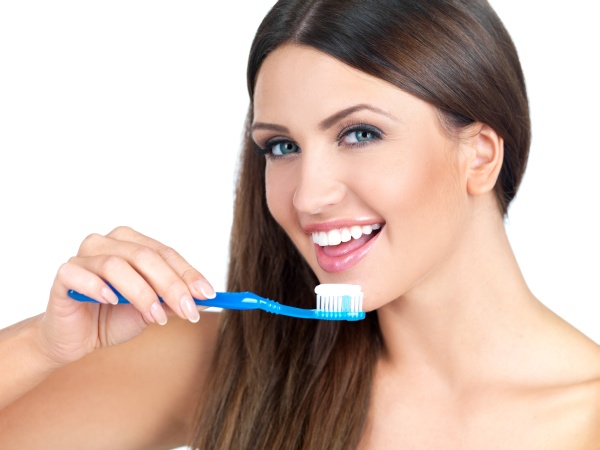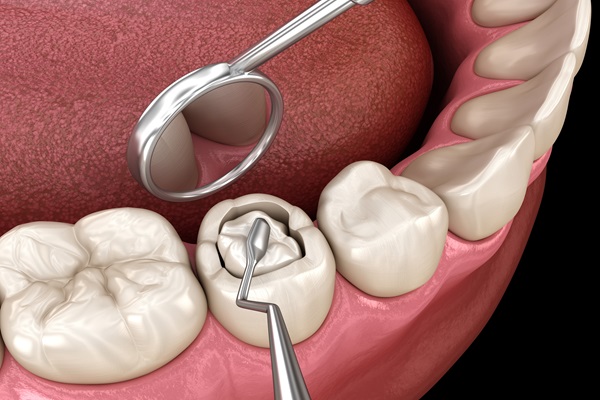4 Tips for Protecting Tooth Enamel
 If brushing your teeth is the first line of defense against gum disease and tooth decay, then your enamel is your last line of defense, which means you have to protect it if you want to avoid tooth decay. If you are not sure about what you need to do, here are some useful tips for protecting tooth enamel.
If brushing your teeth is the first line of defense against gum disease and tooth decay, then your enamel is your last line of defense, which means you have to protect it if you want to avoid tooth decay. If you are not sure about what you need to do, here are some useful tips for protecting tooth enamel.
1. Brush your teeth regularly
Brushing your teeth is very important because it helps get rid of the plaque that forms on your teeth after you eat and drink. The American Dental Association recommends brushing your teeth twice a day and flossing regularly. You should also make sure you use toothpaste that contains fluoride, which strengthens your enamel and helps to prevent tooth decay.
Fluoride is also known to make your teeth more resistant to the acids that come from foods and drinks and the bacteria in your mouth. Using mouthwash that contains fluoride is also a good way to fight cavities and strengthen your enamel.
Regular checkups with the dentist are also great for protecting tooth enamel because your dentist cleans out your teeth with a strong fluoride solution that helps to strengthen your enamel.
2. Avoid sugary foods and drinks
Even though they taste good going down, you should avoid sugary foods and drinks because the bacteria in your mouth feed on the sugar then make acids that wear away and soften your enamel, making your teeth vulnerable to decay.
Sticky foods and chewy candy can also cause damage to your teeth and lead to decay. Even though sodas and juices with artificial sweeteners are a better alternative, they also contain acids that will wear down your enamel. If you must have a sugary drink, use a straw to lessen the damage on your enamel.
3. Eat foods with plenty of calcium
One of the best ways to protect your enamel is to eat foods that contain calcium because the calcium counters the acids in your mouth that are responsible for tooth decay. Calcium is also good for keeping your teeth and bones strong.
Dairy products like milk and cheese are good sources of calcium, but you might want to go with the fat-free or low-fat options to avoid putting on some extra pounds. If you are allergic to dairy or you are not a big fan of dairy products, you can eat other foods that have calcium or take calcium supplements.
4. Do not over-brush your teeth
Even though brushing your teeth regularly is great for protecting tooth enamel, you can also wear down your enamel if you brush your teeth too hard. A lot of people think the harder they brush their teeth the cleaner they are going to be, which is not the case.
In fact, dentists recommend using soft bristle toothbrushes because they do not damage your enamel the way hard bristles do. Use gentle strokes when you brush your teeth and wait for an hour after eating before you brush because the acids in the foods can soften your enamel and weaken the teeth, making it easier to damage while you brush.
Conclusion
Protecting tooth enamel is very important if you want to avoid tooth decay. You can get more tips on how to keep your enamel strong by visiting your dentist.
Request an appointment here: https://www.emergencydentistinorlando.com or call Maitland Square Dentistry at (407) 337-1112 for an appointment in our Maitland office.
Related Posts
Seeing your dentist for a dental checkup means having a complete oral exam and professional cleaning. Your dentist may also provide tips on how to floss or brush properly. This dental visit aims to help keep your teeth and gums in top shape. Knowing what to expect can help you prepare for it. If you…
Going in for a dental checkup might not be at the top of your priority list, but it should be. There could be many reasons why you have not been to the dentist’s office for a year or longer. Life can get busy, or you may have fears or anxieties about these visits. Whatever has…
Even though most oral infections differ in their etymology and symptoms, they have a common course: Their damages and severity greatly increase with time. Below are some of the most common oral infections that may rob you of your smile and chewing comfort.Gingivitis is characterized by localized gum inflammation; it does however not lead to…
Practicing good oral hygiene basics is the best line of defense against cavities, abscesses and other problems that can plague a person’s mouth. A visit to the dentist can show someone where changes need to be made and help direct improvements in cleaning habits. The following information can more fully explain what needs to happen…
 If brushing your teeth is the first line of defense against gum disease and tooth decay, then your
If brushing your teeth is the first line of defense against gum disease and tooth decay, then your 
